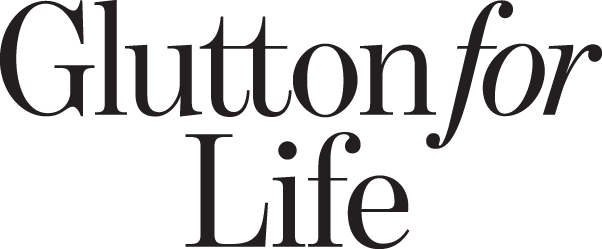4.21.15 Live Long & Prosper

Dis-moi ce que tu manges, je te dirai ce que tu es. [Tell me what you eat and I will tell you what you are.] That famous quote is from legendary epicure Jean Anthelme Brillat-Savarin's 1826 tome, Physiologie du Gout, ou Méditations de Gastronomie Transcendante. In the nearly two centuries since its publication, what we have learned only confirms this seemingly reductive statement. The rise of industrialized and fast foods—and the attendant increase in cardiovascular illness, obesity and diabetes—has brought renewed focus to the pervasive impact of nutrition on health. This is not news to anyone who reads this blog. Three of the basic tenets that are the backbone of my work here are directly related: Eat adventurously, for health and pleasure. Stay close to nature and explore its ability to nourish and heal. Expand your mind and your palate, not your waistline. So it was with great interest that I read Dr. Mitchell Gaynor's just-released book, The Gene Therapy Plan: Taking Control of Your Genetic Destiny with Diet and Lifestyle. Christiane Northrup describes it as "a godsend that could save your life."

Dr. Gaynor is a renowned oncologist, a pioneer in integrative medicine and a specialist in ecogenetics, the study of how genetic traits respond to environmental substances. It's no surprise then that his book is deeply rooted in scientific research. This is not like reading a post on Mind Body Green, which doesn't mean it isn't written for the layperson. Dr. Gaynor breaks down the information into accessible concepts so you can easily grasp things like free radicals and advanced glycation end products. There are also plenty of scannable lists (Top Ten Foods for Healthy Hair, Top Five Supplements to Combat Binge and Emotional Eating) and even a section with recommendations for tools and resources like juicers, household cleaners and beauty products.

Dr. Gaynor's basic premise is that we can use nutrition (whole foods and quality supplements) both to prevent disease and to reverse it, if we target our genetic predispositions at the cellular level. The book is divided into chapters that discuss the most prevalent (and lethal) diseases: Obesity, Heart Disease, Cancer and Diabetes.There is also a chapter on Aging, perhaps the deadliest disease of all. Success stories about Dr. Gaynor's patients are sprinkled throughout. Suggested meal plans and recipes round out the content. While I may not be making the Flounder and Endive Nut Salad any time soon, there are a number of juices that look intriguing. I'll include a recipe for one below.

There is a great deal to be learned from this book, especially about targeted supplements and how to avoid toxins. The most important takeaways, however, are things you probably already know but should revisit on a regular basis: Eat a highly diverse diet rich in brightly colored fruits and vegetables (including raw), good fats (like avocado, flax and coconut) and quality protein. Choose organic where it matters. Avoid processed foods—period. Get good sleep. Drink plenty of water. Exercise moderately but frequently. Find your zen.
It's not about rigid formulas or "diets" per se. Knowing what works for you is about experimenting, learning and persevering. As Dr. Gaynor writes, "Good health isn't a destination, it's a lifelong practice." Visit his educational hub to learn more about these and related topics.

A few of my favorite discoveries from the book:
Avoid acrylamides. These carcinogens are found in crunchy high-starch foods, like every processed cracker or chip. (Correlation to breast cancer is documented.)
Be gentle with your food. A corollary to the above. In other words, don't cook it to death. Think about steaming rather than boiling or sauteeing. Aggressive high heat should be kept to a minimum. (Good to bear in mind as the season of grilling approaches.)
Coconut crystals are the best sweetener. This probiotic nutrient supports intestinal health, has a lower glycemic index and is rich in vitamins. (This is the recommended brand.)
Banish peanuts. Grown underground, they become contaminated with a toxin-containing fungus linked to cancer. (Eat almonds, walnuts and Brazil nuts instead.)
Drink green tea. 2-3 cups per day assist in burning fat during exercise.
The Gene Therapy Plan is a wonderful handbook for those who want to take charge of their health and to stay active, energized and vital for as long as possible. That's everybody, right?
Ecogenetic Juice for Aging
makes 1 drink
- — 1/2 cup organic tomato juice
- — 1/4 cup cilantro leaves and delicate stems
- — 1 tablespoon spirulina powder
- — Juice from 1 lime
- — 1 tablespoon raw honey
- — 1 teaspoon royal jelly
- — 1 teaspoon Barlean's Omega Swirl
- — 1 teaspoon ground ginger
Blend all ingredients for 15 to 20 seconds on low. Drink and enjoy.
 Download Recipe
Download Recipe






4 Comments